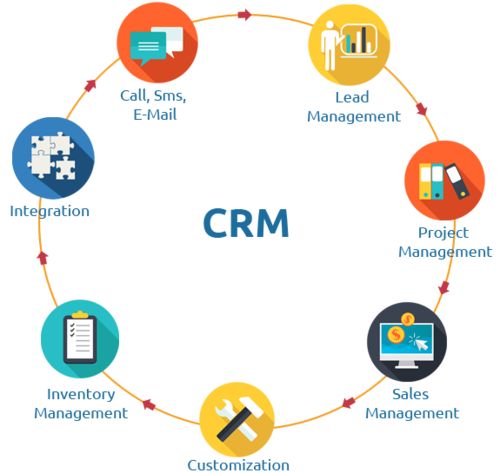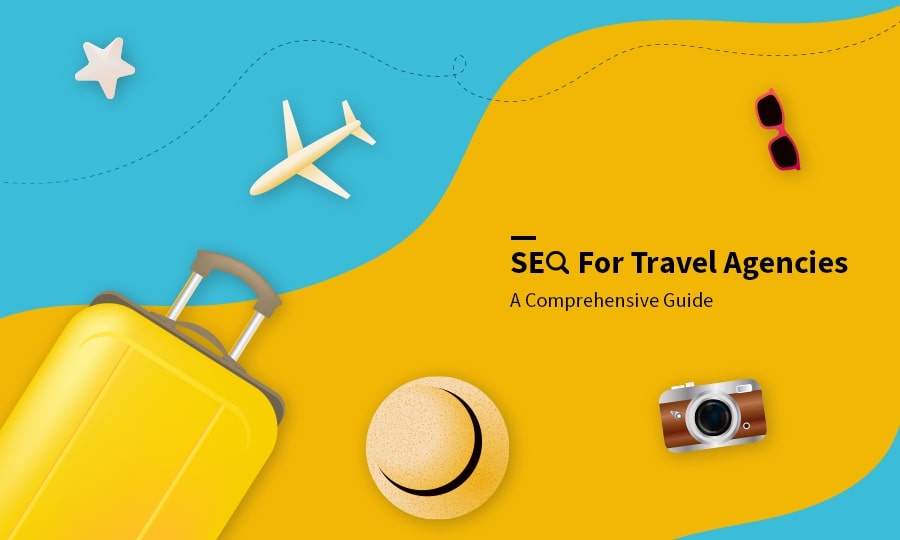
In the fast-paced and competitive travel industry, it's important to keep a good relationship with clients if you want to be successful in the long run. More and more businesses, from tour operators to travel agencies and destination management companies, are using CRM for travel companies to make their operations run more smoothly, get more customers involved, and make more money. A good CRM (Customer Relationship Management) system can change how travel companies do business by making them more efficient, focused on customers, and able to change with the needs of the market.
This article talks about the best things about CRM for travel companies. It will help you see how the right technology can change your travel business.
1. Managing customer data in one place
One of the best things about a CRM for travel companies is that it lets them keep all of their customer information in one place. Travel companies have to handle a lot of client information, such as payment details, travel history, personal preferences, and communication logs. A CRM system puts all of this information in one place, making it easy to find and use.
Agents can give better, more personalized service when they can see the customer from all angles. The CRM makes sure that no detail is missed, whether it's remembering a client's favorite airline or sending them a birthday discount.
2. Better experience for customers
Travelling is a very personal experience. People who travel expect personalized itineraries, quick answers, and smooth interactions. CRM for travel companies makes this possible by letting businesses use customer data to make unique experiences.
You can now send automated messages, make targeted offers, and offer proactive customer service. CRM improves every interaction with a client, whether it's suggesting a new place to visit based on past trips or sending a satisfaction survey after the trip.
3. Better management of leads and sales
One of the best things about CRM for travel companies is that it can help them keep track of leads and sales pipelines. Travel companies often have to deal with a lot of requests, quotes, and follow-ups at once. A CRM helps them keep track of all of these tasks logically.
The CRM makes sure that no chance is missed by capturing leads through web forms and keeping track of follow-up calls and emails. Sales teams can spend more time on high-potential leads and closing deals faster, which will boost overall conversion rates.
4. Making routine tasks automatic
Sending confirmations, billing, or updating customer records over and over again can take up a lot of time. CRM for travel companies can automate these everyday tasks, giving employees more time to work on strategic tasks.
Automated workflows make sure that things are done the same way every time, cut down on mistakes made by hand, and increase productivity overall. This is especially useful during busy times when being efficient is very important.
5. Better working together as a team
Sales, customer service, finance, and operations are just a few of the departments that work together at travel agencies. CRM for travel companies is a shared space where all departments can see the most recent information about customers.
This makes it easier for teams to talk to and work with each other. For example, the operations team can start getting things ready while a sales rep is taking a booking. This makes service delivery go more smoothly.
6. Making decisions based on data
A CRM system lets you do smart analytics and reporting. CRM for travel companies gives you information like customer lifetime value, conversion rates, booking trends, and customer satisfaction scores.
Travel companies can use these insights to make smart choices, spot opportunities, and lower risks. Managers don't have to guess anymore; they can make plans based on real-time data.
7. Keeping customers longer
Keeping a current customer is much less expensive than getting a new one. CRM for travel companies makes it easier to build long-term relationships by keeping in touch with customers, offering loyalty programs, and making personalized offers.
Automated follow-ups, birthday greetings, or early bird deals for repeat travelers keep your brand in the minds of your customers. The CRM can also find customers who are at risk and suggest timely actions.
8. More money and profit
All of the benefits above lead directly to an increase in revenue. CRM for travel companies has a direct effect on the bottom line by making sales more efficient, lowering churn, and making customers happier.
Agents can upsell and cross-sell more easily when they know everything about a customer's likes and dislikes. Based on what you've done in the past, a CRM for travel companies to go with a flight or an upgraded hotel package.
9. Flexibility and Scalability
It becomes hard to keep track of clients by hand as your travel business grows. CRM for travel companies grows with your business, so you can add more users, clients, or features without having to stop working.
A lot of CRM platforms are cloud-based and can be changed to fit your business model and workflow. There is a CRM solution that works for you, whether you book corporate trips or adventure trips.
10. Data Security and Compliance
If you handle sensitive customer data, you have to follow data protection laws like GDPR. CRM for travel companies makes sure that data is stored safely, encrypted, and only certain people can access it.
You can give team members different levels of access, keep an eye on how data is used, and make sure that customer information is safe from breaches. This makes your customers trust you more and keeps your business in line with the law.
11. Communicating through many channels
People who travel today use a lot of different ways to talk to travel companies, like email, phone, social media, and live chat. A strong CRM for travel companies brings all of these channels together in one place.
This makes sure that no communication is lost and gives a complete picture of all customer interactions. It also helps you respond more quickly and consistently across all channels.
12. Better Campaigns for Marketing
In the travel business, targeted marketing is very important. CRM for travel companies lets them divide customers into groups based on their demographics, travel history, preferences, and levels of engagement.
You can make email, SMS, or social media ads that are just right for certain groups. For instance, you could send a beach vacation deal to people who have already booked a trip to the beach.
13. Updates in Real Time and Access on Mobile
Many CRM systems have mobile apps that let agents look up customer information while they are on the go. CRM for travel companies keeps field agents and remote staff in touch and up to date.
Real-time updates let you act right away on new leads, changes to your itinerary, or customer requests, making you more responsive and flexible.
14. Working with booking and accounting systems
You can connect CRM for travel companies to booking engines, accounting tools, and services from other companies. This gets rid of having to enter the same data twice and makes sure that everything runs smoothly.
When a booking is confirmed in the CRM, for example, it can automatically show up in the invoicing system. This cuts down on mistakes and saves time.
Conclusion
There are many and wide-ranging benefits to travel companies that use a CRM. Travel companies can stay ahead in a very competitive market with CRM systems. They can do things like manage customers better, work together better, and make more money and sales.
Buying the right CRM for travel companies is more than just a tech upgrade; it's a smart move that can change how you get, keep, and please customers. To keep doing well in the travel business, you need to use CRM technology as the industry changes.
A strong CRM for travel companies will help you stand out and do well in the digital age, whether you run a small boutique agency or a large tour company.

 Start your Travel Business with Our 7 Day Free Trial Website!
Start your Travel Business with Our 7 Day Free Trial Website!





